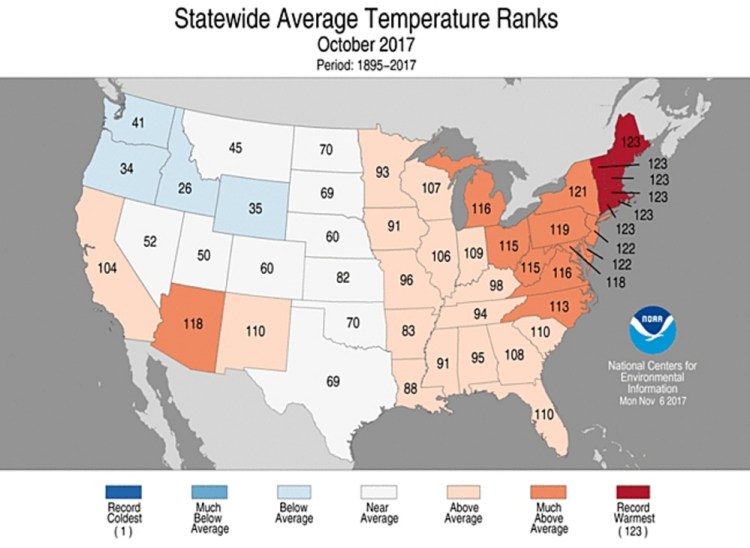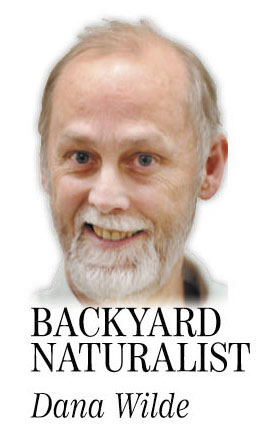The last week or so there’s been a bite in the wind, but otherwise it seems like summer stretched all the way to November this year. Meaning the daytime temperature at my house included 60s and up to 70 right through the first week of this month. I have kind of mixed feelings about this.
On the one hand, I had no objection to October turning out to be the warmest on record in Maine and New England. In fact, according to NOAA, the temperature in New England from May through October was “much above average.” Warm weather is welcome, on a day to day basis.
But if you can remember back more than a couple of decades, you also know there were reasons why Labor Day weekend was viewed as the end of summer. Not only did school start, closing down family vacation season, but fall had always decisively sharpened the air by then. I remember a nimbus-rocking northwest gale stiffening my young knuckles and blowing my ball all over a golf course in Naples one long-ago Labor Day. It didn’t seem unusual.
By mid-September frosts settled on the tomato plants and leaves turned. Nigh-on 40 years ago, I recall gazing out a classroom window in Orono about the third week of September during the first college course I ever taught, and thinking the red, yellow, orange leaves in the woods up the hill looked like a bowl of Trix.
In those days a spell of warm days usually returned in late September or early October — and by that I mean temperature popping back up to 70 degrees or so. That’s where the expression “Indian Summer” came from. Nowadays, Indian Summer doesn’t really exist. Those few days or a week now make up the whole of September. The red maple by the driveway that 20 years ago was always aflame before month’s end now waits until October to turn. This year it was 10 or so more days further on. We’ve seen very little frost on the cars before October in recent years — here in Troy, anyway.
A while ago I gave a reading to a group of fellow backyard naturalists, including a rumination on the turn to winter, and afterward one of them asked me why I referred to November as “fall.” “Isn’t it winter, by then?” she asked.
All I could think of to say was, “No.” Not with Novembers past in mind, anyway.
Winter is characterized by snow and ice. It used to be that snowfall measured in multiple inches could be expected in November, and then your internal clock would re-set to winter. I remember at least one school-closing blizzard the first week of November in the late ’60s. About 20 years ago my brother’s pickup got stuck in the driveway on Thanksgiving Day. There was a hefty accumulation of snow three years ago, and there are still cold spells. But the average snowfall for the month overall is less than 2 inches, according to one meteorologist’s blog. With a few exceptions, not much frozen stuff has fallen out of the sky in November for years. November is the tail end of autumn, not the beginning of winter.
This doesn’t mean snow doesn’t fall in November. Here in Troy we haven’t even seen a snowflake yet, though some other spots did last week. It can still happen in its natural turn, the same way the giant hurricanes that wrecked Houston, Key West and Puerto Rico, the fire-kindling drought out West, the disappearing glaciers in national parks, and our unusual blow-down windstorm in October all could be events just in their natural turn.
But you know, they’re probably not. Probably they’re all effects of the climate changing much faster and sooner than the scientists even predicted.
Which brings me back to that summerlike October, and early November. I like it in the short run, but I fear what it means for the long run. I have a little grandson who may end up with few, or no November snowstorms in his memory banks. I hope it is not any worse than that for him. But I don’t know.
Dana Wilde lives in Troy. You can contact him at naturalist1@dwildepress.net. His recent book is “Summer to Fall: Notes and Numina from the Maine Woods” available from North Country Press. Backyard Naturalist appears the second and fourth Thursdays each month.
Send questions/comments to the editors.




Comments are no longer available on this story